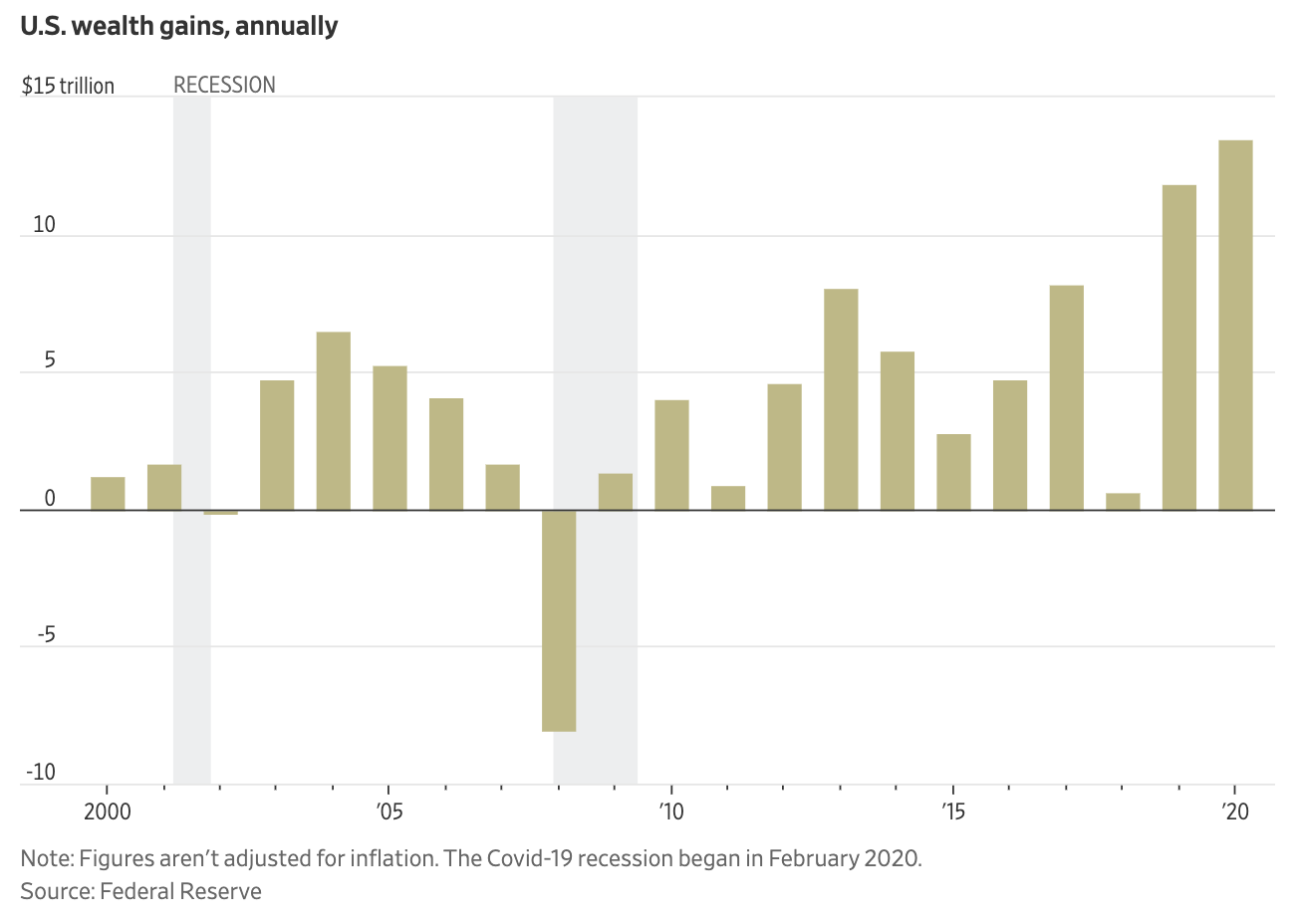The uncertainty that arose at the beginning of the pandemic led many to fear we were headed toward a 2008 economic environment. Thankfully, according to some measures, Americans have created more wealth over the past year than they lost during the Great Recession, as the chart below indicates. In 2020, Americans gained $13.5 trillion in wealth, whereas in 2008, Americans lost $8 trillion.
It’s important to define our terms. Wealth in this context is calculated by “subtracting a household’s liabilities, such as mortgages and college debt, from assets such as homes and stock market investments.”
This chart is fascinating in its own right, as it highlights how very different the Covid crisis played out financially–at least at the macro level–when compared to the Great Recession. It offers us one small insight into how many Americans fared economically, as a whole. Of course, it doesn’t (and isn’t designed to) tell the stories of the stress, loss, and pain experienced by so many this past year.
A number of North Carolinians don’t feel as if their financial situation is better today than it was one year ago, according to a Civitas Poll released just last week. Of those surveyed who make less than $50,000 per year, 40% said their financial situation was worse, while only 16% said it was better. Even among other income demographics, there weren’t many who indicated they were better off compared to last year.
But even with the limitations of this chart, it clarifies that there were unique circumstances surrounding the pandemic and the subsequent policy response that were sharply different from 2008. Businesses continue to hungrily look for employees. Homes are selling like hotcakes in numerous North Carolina markets. Vaccine accessibility is unparalleled. Alternatively, we are seeing undeniable indications of inflation, and a Fed that doesn’t seem too keen on doing much about it.
The jury is still out on whether this past year’s increase in wealth translates into tangible, measurable quality of life outcomes for Americans in the long run. My hope is that the chart above is a promising sign of sustained recovery, but even my tenderfooted economic knowledge would urge caution. The Feds have printed inordinate amounts of dollars and politicians have made lofty promises. But I am reminded of words from an ancient book that says, “wisdom is justified by her children.” And in the case of our government’s policy response to the pandemic, that means we might not have a clear answer on whether Americans have created real wealth or we’re looking at a mere illusion of wealth until more chickens have come home to roost.



